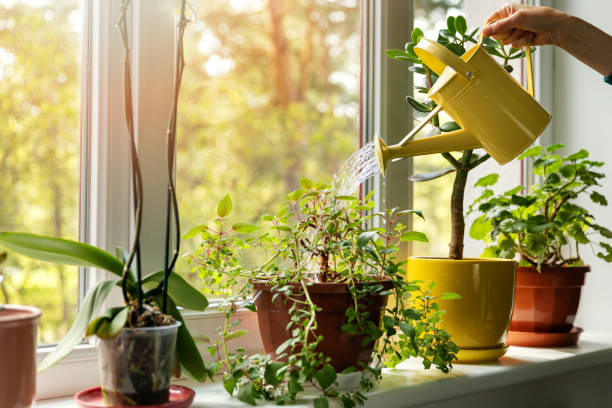
FAQ About Plant Care
Plant Care
2 years ago | gizem
Can I use rainwater to water my plants?
Using rainwater to water your plants can be beneficial in many ways. Here are some advantages of using rainwater:
- Natural pH and minerals: Rainwater is generally slightly acidic, which is beneficial for most plants. It also contains natural minerals that can nourish plants.
- No added chemicals: Unlike tap water, rainwater does not contain chlorine, fluoride, or other chemicals that are often present in treated tap water. This can be particularly advantageous for sensitive plants.
- Cost-effective: Rainwater is free, which can help reduce your water bill and overall expenses in the long run.
- Environmental sustainability: Utilizing rainwater reduces the demand for treated tap water, conserves water resources, and promotes sustainable gardening practices.
To use rainwater for watering your plants, here are some guidelines:
- Collection method: Set up a rain barrel or a similar collection system to catch rainwater. Ensure the container is clean and free from contaminants.
- Roof suitability: If collecting rainwater from a roof, make sure the roofing materials are safe and suitable for water collection. Avoid collecting water from roofs with toxic coatings or materials.
- First-flush system: Install a first-flush diverter or use the initial runoff from the roof to flush away debris, dust, and contaminants. This helps improve the quality of the collected rainwater.
- Storage and filtration: Store rainwater in clean containers that are covered to prevent debris, mosquito breeding, and evaporation. You can use a fine mesh screen or a filter to remove larger debris before storing the water.
- Watering considerations: Use the collected rainwater to water your plants as needed. Keep in mind the water requirements of each plant and adjust the amount accordingly. Avoid overwatering, as excess moisture can lead to other problems such as root rot.
